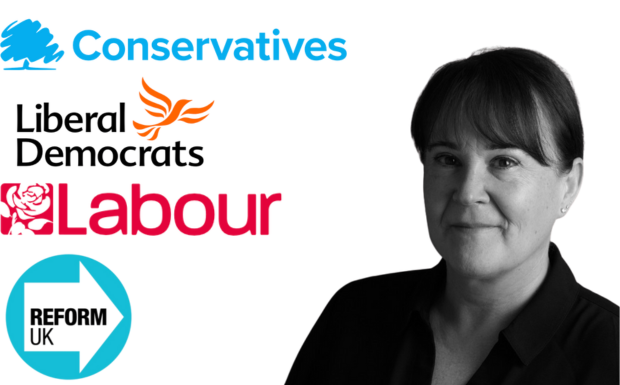Key housing and property policy developments from all four major UK political party conferences revealed a clear divide between those prioritising hard targets and those favouring deregulation.
With housing a central issue on the national agenda ahead of the next general election, the party gatherings provided critical insight into each party’s stance on the future of the property market.
HOUSING SUPPLY
During their conference in Liverpool, Labour reaffirmed its leading election pledge to deliver 1.5 million new homes in England by 2029, unveiling plans to launch 12 new towns, with Tempsford, Leeds South Bank, and Crews Hill in North London named as initial development zones.
The party signalled a determination to “do whatever it takes” to get Britain building, including tackling the housing skills shortage.
FIRST-TIME BUYERS
The Conservatives did not introduce new national housebuilding targets, instead maintaining a focus on demand-side support. While no additional supply targets were announced, fiscal incentives aimed at first-time buyers dominated the conversation.
The Liberal Democrats reiterated their long-standing target of building 380,000 homes per year, with a particular focus on delivering 150,000 social homes annually.
Reform UK didn’t focus much on property during their own conference, and when doing so they took a less data-driven approach, offering rhetoric on fast-tracking brownfield development and loosening affordable housing requirements, although detailed policy commitments were limited.
PLANNING
Planning policy drew clear dividing lines between the parties. Labour committed to mandatory housing targets and a “brownfield-first” approach, supplemented by the strategic release of certain grey-belt sites under defined conditions.
Ministers also hinted at a series of technical reforms aimed at reducing build-out times and adjusting planning thresholds.
In contrast, the Conservative Party gave little attention to planning, aside from broad references to green belt protections.
TAX AND ENERGY POLICY
Discussions around planning reform were notably absent from the main stage, with greater emphasis placed on tax and energy policy.
The Liberal Democrats expressed support for prioritising brownfield development, in keeping with their broader environmental agenda.
Reform UK advocated for streamlining planning processes and infrastructure funding, again placing brownfield development at the forefront, alongside a broader narrative of reducing net migration as a means to ease housing pressure.
HOMEBUYING PROCESS
Labour placed significant emphasis on reforming the homebuying process, proposing a blueprint to reduce transaction timelines by up to a month.
Measures include increasing the provision of up-front information, piloting binding offers, and improving industry standards for estate agents. Labour claims these reforms could save first-time buyers an average of £710 and speed up completions significantly.
FIRST JOB BONUS
The Conservative Party announced a £5,000 “First Job Bonus” in the form of a National Insurance rebate for first-time buyers with couples eligible for up to £10,000.
They also pledged to abolish stamp duty on the purchase of main homes under a future Conservative government.
The Liberal Democrats reiterated their commitment to regulating estate and letting agents, though broader plans for homebuying reform were less detailed. Reform UK made limited mention of the issue during their conference.
RENTERS AND LEASEHOLDERS
Labour confirmed that its Renters’ Rights Bill is nearing Royal Assent, alongside a broader focus on improving the safety and condition of social housing. The party is also working on a wider leasehold reform agenda, with further details expected in due course.
The Conservatives offered little in terms of policy updates for renters or leaseholders during their conference, as housing played a secondary role to fiscal and welfare matters.
The Liberal Democrats took a more assertive stance, vowing to abolish leasehold arrangements entirely, cap ground rents, and remove dangerous cladding at no cost to leaseholders.
Reform UK made limited contributions in this area, choosing instead to focus on broader housing supply narratives.
KEY TAKEAWAYS
This year’s party conference season exposed an increasingly divergent approach to housing policy.
While Labour and the Liberal Democrats came armed with detailed reform agendas and firm targets, the Conservatives and Reform UK leaned more on fiscal tools and deregulation.
For the property sector, that splits matters dramatically. Whoever leads the next government will undoubtedly inherit a housing industry that is strained by demand, tighter regulations and a delivery policy that is fractured and unclear.
Clarity, consistency and credible implementation will be the true test of every promise made this autumn.
DEFINING MOMENT
While some parties are willing to set hard targets and tackle systemic issues head-on, others are leaning on deregulation and fiscal levers to let the market decide.
Either way, this is a defining moment for housing policy.
The industry is ready to deliver – it’s strong policy that needs to catch up.
What happens next, including the impact of the Budget next month and consultations on the homebuying and selling process, will determine whether ambition or autonomy wins out.





